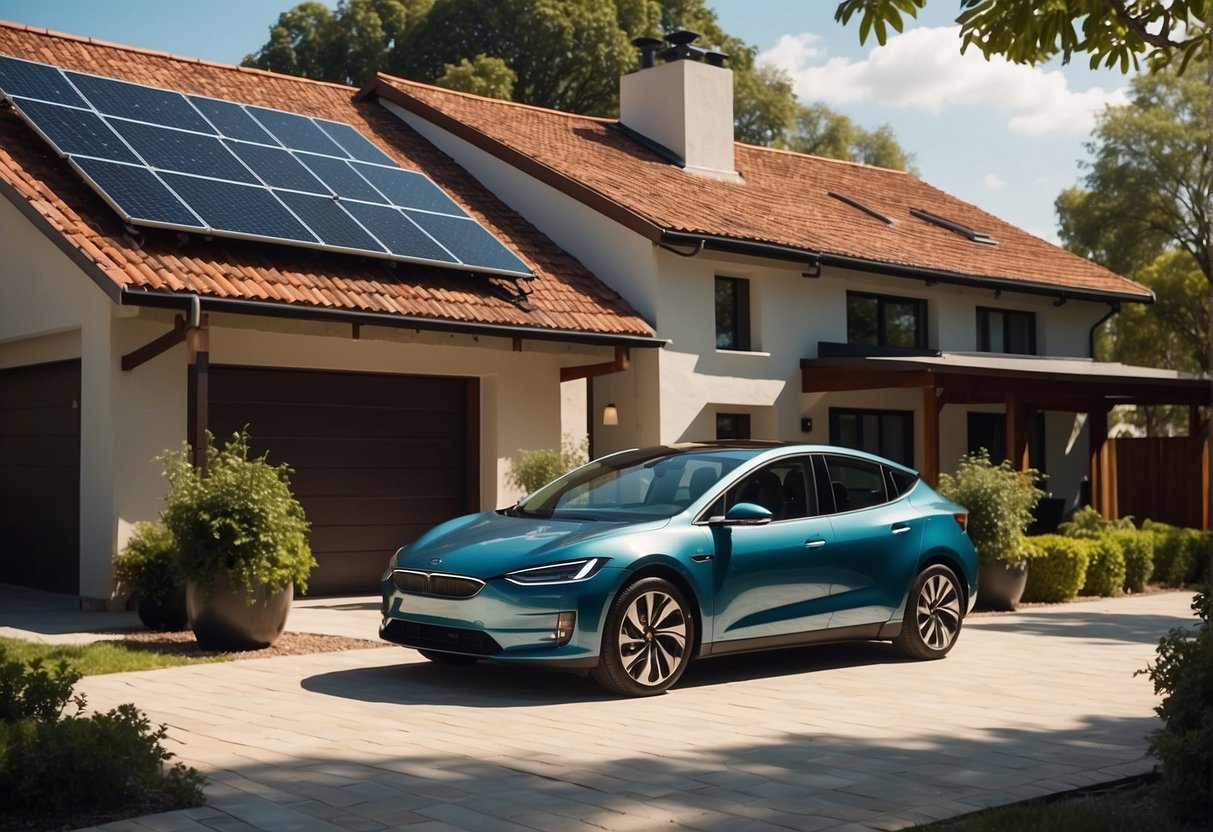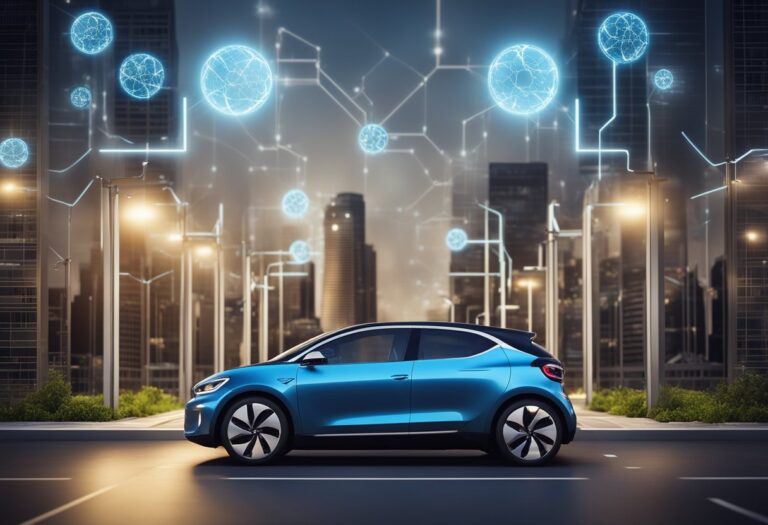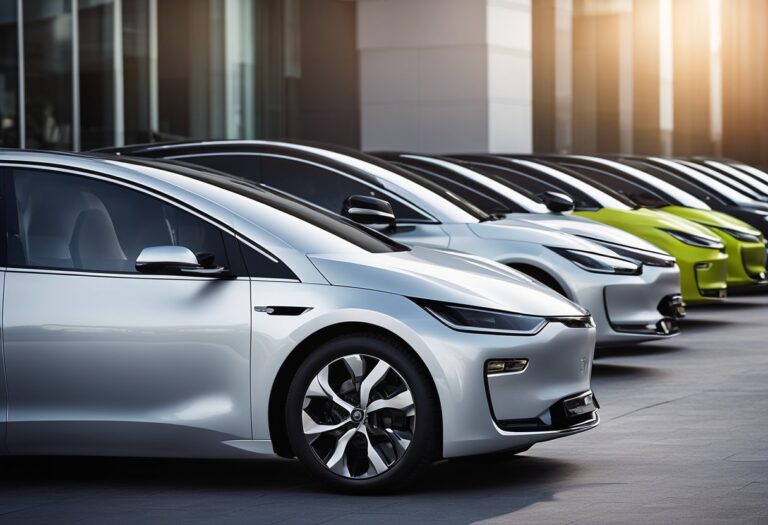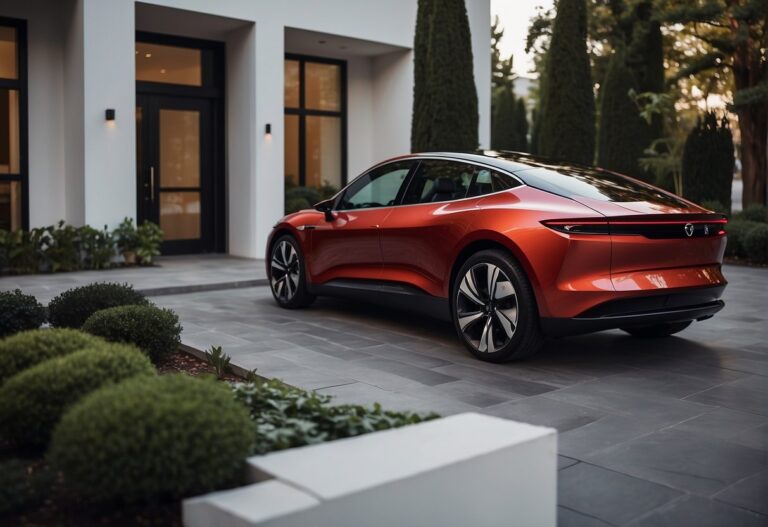Home solar panels and electric car charging are a perfect match for those who want to reduce their carbon footprint and save money on energy bills. With the increasing popularity of electric vehicles, more homeowners are considering installing solar panels to power their vehicles. Solar energy is a renewable and sustainable source of power that can be harnessed to charge electric vehicles.
Home solar panels can be used to power not only the lights and appliances in a home but also an electric vehicle. Solar panels generate electricity during the day when the sun is shining, and this electricity can be stored in batteries or used to charge an electric vehicle. By using solar energy to power an electric vehicle, homeowners can reduce their dependence on fossil fuels and save money on energy bills.
Electric vehicles are becoming more affordable and accessible, and with the increasing availability of solar panels, it is easier than ever to charge an electric vehicle with renewable energy. Homeowners can install solar panels on their roofs or in their yards and use the energy generated to power their homes and electric vehicles. With the many benefits of home solar panels and electric car charging, it is no wonder that more and more people are making the switch to sustainable and renewable energy sources.
Integrating Home Solar Panels with Electric Vehicle Charging
Electric vehicles (EVs) are becoming increasingly popular as people look for ways to reduce their carbon footprint and save money on fuel costs. However, charging an EV can be expensive, especially if you rely on public charging stations. One solution to this problem is to install home solar panels and use them to power your EV. In this section, we’ll explore the basics of solar-powered EV charging, assess your solar and EV charging needs, and help you choose the right equipment for your home.
The Basics of Solar-Powered EV Charging
Solar-powered EV charging involves using a solar panel system to generate electricity, which is then used to charge your EV. The system typically includes a solar array, an inverter to convert the DC power generated by the solar panels into AC power that can be used by your home and EV, and a battery storage system to store excess energy for later use.
When it comes to EV charging, there are two main types of chargers: Level 1 and Level 2. Level 1 chargers use a standard 120-volt household outlet and can take up to 20 hours to fully charge an EV. Level 2 chargers, on the other hand, use a 240-volt outlet and can charge an EV in as little as 4 hours.
Assessing Your Solar and EV Charging Needs
Before you can start integrating home solar panels with your EV charging, you need to assess your solar and EV charging needs. This involves determining how much energy your home and EV consume, how much energy your solar panel system can generate, and how much battery storage you need to store excess energy.
To determine your home’s energy consumption, you can look at your monthly electricity bills. Your EV’s energy consumption will depend on the make and model of your vehicle, as well as how often and how far you drive. To determine your solar panel system’s energy generation capacity, you can look at the system’s wattage rating.
Choosing the Right Equipment
Once you have assessed your solar and EV charging needs, it’s time to choose the right equipment. This includes selecting the right solar panel system, EV charger, and battery storage system.
When it comes to solar panel systems, there are two main types: grid-tied and off-grid. Grid-tied systems are connected to the utility grid and can send excess energy back to the grid for credit. Off-grid systems, on the other hand, are not connected to the grid and rely on battery storage to store excess energy.
For EV charging, you’ll need to choose between a Level 1 and Level 2 charger. Level 2 chargers are more expensive than Level 1 chargers, but they are also faster and more convenient.
Finally, when it comes to battery storage, you’ll need to choose a system that can store enough energy to meet your needs. This will depend on how much excess energy your solar panel system can generate and how much energy your home and EV consume.
In conclusion, integrating home solar panels with EV charging can be a great way to save money on fuel costs and reduce your carbon footprint. By following the basics of solar-powered EV charging, assessing your solar and EV charging needs, and choosing the right equipment, you can create a system that meets your needs and helps you achieve your goals.
Benefits and Considerations for a Combined System
Home solar panels and electric car charging are a perfect match for those who want to reduce their carbon footprint and save money on fuel costs. A combined system can provide environmental and economic advantages, but there are also some considerations that homeowners should keep in mind.
Environmental and Economic Advantages
By using solar panels to power an electric car, homeowners can reduce their dependence on fossil fuels and lower their carbon emissions. Solar energy is a renewable source of energy that does not produce harmful emissions like coal or other fossil fuels. This means that homeowners can reduce their carbon footprint and contribute to a greener planet by using a combined solar panel and electric car charging system.
In addition to environmental benefits, a combined system can also provide economic advantages. Homeowners can save money on their energy bills by producing their own electricity and reducing their reliance on grid power. This can also help to protect them from rising electricity costs in the future. Furthermore, homeowners may be eligible for government subsidies or tax credits that can help to offset the cost of installing a solar panel and electric car charging system.
Installation and Maintenance
Installing a solar panel and electric car charging system requires careful planning and consideration. Homeowners should first determine their energy needs and the size of the system required to meet those needs. They should also consider the amount of sunlight their property receives and the location of the solar panels to ensure maximum energy production.
Maintenance of the system is also an important consideration. Homeowners should ensure that the solar panels are clean and free from debris to maximize energy production. They should also regularly check the battery and charging system to ensure that they are functioning properly.
Incentives and Regulations
Homeowners should also be aware of the incentives and regulations that apply to a combined solar panel and electric car charging system. Depending on their location, they may be eligible for government subsidies or tax credits that can help to offset the cost of installation. They should also be aware of any regulations or permits required for installation and operation of the system.
In conclusion, a combined solar panel and electric car charging system can provide environmental and economic benefits for homeowners. However, careful planning and consideration is required to ensure that the system is installed and maintained properly. Homeowners should also be aware of the incentives and regulations that apply to their location.
Frequently Asked Questions
How many solar panels are required to charge an electric car?
The number of solar panels required to charge an electric car depends primarily on the capacity of the solar panels and the energy requirements of the car. On average, a solar panel with a capacity of 250 watts can produce around 30-40 kWh of energy per month. However, the amount of energy required to charge an electric car varies depending on the car’s battery capacity, driving habits, and other factors. It is recommended to consult with a professional solar installer to determine the exact number of solar panels required to meet your specific needs.
What is the cost of installing a solar EV charging station at home?
The cost of installing a solar EV charging station at home varies depending on several factors, including the capacity of the solar panels, the type of EV charger, and the installation costs. On average, the cost of installing a solar EV charging station at home ranges from $3,000 to $7,000. However, the cost can be significantly higher for larger solar panel systems and more advanced EV charging stations. It is recommended to get a quote from a professional solar installer to get an accurate estimate of the cost.
Is it possible to charge an electric vehicle directly from solar panels?
Yes, it is possible to charge an electric vehicle directly from solar panels. However, it is important to have a battery storage system to store excess energy generated by the solar panels. This ensures that the electric vehicle can be charged even when there is no sunlight. It is recommended to consult with a professional solar installer to determine the best battery storage system for your needs.
What are the best practices for charging an EV with home solar panels?
The best practices for charging an EV with home solar panels include optimizing the solar panel system for maximum energy production, using a high-quality EV charger, and scheduling charging during off-peak hours. It is also recommended to use a battery storage system to store excess energy for later use.
Can portable solar panels be used to charge an electric vehicle efficiently?
Portable solar panels can be used to charge an electric vehicle, but they may not be as efficient as a fixed solar panel system. Portable solar panels are generally smaller and have lower capacity, which means they may take longer to charge an electric vehicle. It is recommended to use a fixed solar panel system for more efficient charging.
Should I charge my electric car during peak sunlight hours to maximize solar energy use?
It is not necessary to charge an electric car during peak sunlight hours to maximize solar energy use. In fact, it is recommended to charge the car during off-peak hours to take advantage of lower electricity rates. However, it is important to ensure that the solar panel system is optimized for maximum energy production to ensure that the car is charged efficiently.



